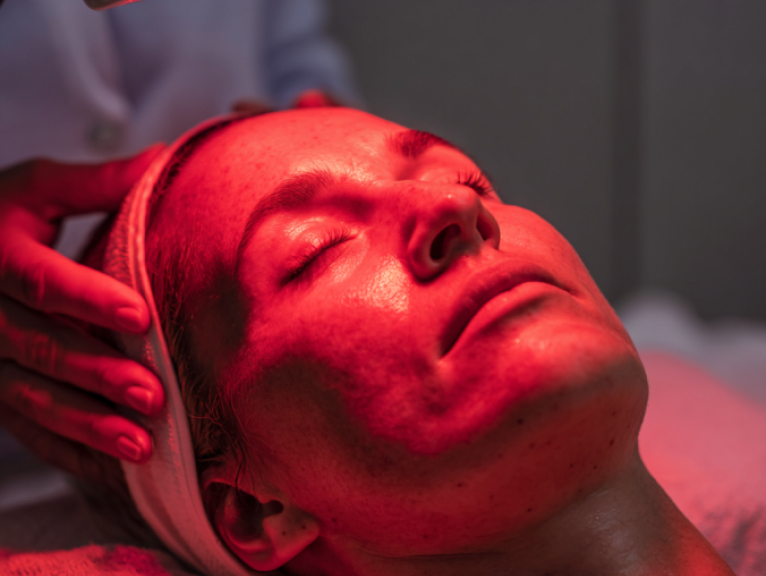
20 Years of Producing the Highest Quality, Most Reliable, and Effective LED mask.
Discover how red light therapy helps CTE symptoms through clinical research. FDA-cleared LED devices target neuroinflammation, improve brain function & support recovery. Professional-grade treatment at home.

Chronic Traumatic Encephalopathy (CTE) has emerged as one of the most pressing neurological concerns of our time, particularly affecting athletes, military personnel, and individuals who have experienced repeated head trauma. As we continue to understand the devastating effects of this progressive neurodegenerative disease, researchers are exploring innovative treatment approaches that could offer hope to millions of affected individuals. Among these emerging therapies, red light therapy, also known as photobiomodulation (PBM), is showing remarkable promise in addressing the underlying mechanisms of CTE.
Chronic Traumatic Encephalopathy is a progressive brain condition associated with repeated head traumas, including both concussions and subconcussive impacts. Unlike acute brain injuries, CTE develops over years or decades, often manifesting symptoms long after the initial trauma has occurred.
The condition has been extensively documented in professional football players, boxers, hockey players, military veterans, and others who have experienced repetitive head impacts throughout their careers.
Red light therapy utilizes specific wavelengths of light, typically between 660-850 nanometers, to stimulate cellular processes within the body. When applied to neurological conditions like CTE, red light therapy works through several mechanisms that directly address the underlying pathophysiology of the disease.
Enhanced Mitochondrial Function: Red light stimulates mitochondria, the powerhouses of cells, increasing ATP production and improving cellular energy metabolism. This is crucial for brain cells, which have exceptionally high energy demands.
Reduced Neuroinflammation: Studies have shown that red light therapy can significantly reduce inflammatory markers in the brain, helping to break the cycle of chronic inflammation that contributes to CTE progression.
Improved Blood Flow: Near-infrared light enhances cerebral blood circulation, ensuring better oxygen and nutrient delivery to damaged brain tissue while facilitating the removal of metabolic waste.
Neuroprotection: Red light therapy appears to protect neurons from further damage by reducing oxidative stress and supporting the brain's natural repair mechanisms.
Neuroplasticity Enhancement: Some research suggests that photobiomodulation may promote the formation of new neural connections, potentially helping to compensate for damaged brain regions.
While research specifically focused on CTE and red light therapy is still in its early stages, numerous studies have demonstrated the effectiveness of photobiomodulation for various neurological conditions that share similar pathophysiological mechanisms with CTE.
A 2017 study published in the Journal of Neurotrauma found that transcranial LED therapy significantly improved cognitive function in patients with traumatic brain injury. Participants showed marked improvements in memory, attention, and executive function after just 18 sessions of treatment.
Research published in Photomedicine and Laser Surgery demonstrated that near-infrared light therapy could reduce tau protein accumulation in animal models of neurodegenerative disease, directly addressing one of the primary pathological features of CTE.
A landmark study in the Journal of Alzheimer's Disease showed that patients with mild cognitive impairment experienced significant improvements in memory and cognitive processing speed after receiving transcranial photobiomodulation therapy.
Military research has shown particularly promising results, with veterans experiencing traumatic brain injuries showing improved cognitive function, reduced depression, and better sleep quality following red light therapy treatments.
At LEDMask.co, we understand that brain health extends far beyond cosmetic concerns. Our advanced LED therapy devices incorporate the specific wavelengths and power densities that research has shown to be most effective for neurological applications.
Precise Wavelength Control: Our devices deliver exact wavelengths (660nm and 850nm) that have been proven most effective for brain health applications.
Clinical-Grade Power Density: We ensure optimal light penetration to reach deeper brain tissues while maintaining safety standards.
FDA-Cleared Technology: Our devices meet rigorous safety and efficacy standards for therapeutic light therapy.
Convenient Home Treatment: Access professional-grade therapy from the comfort of your home, enabling consistent treatment protocols essential for neurological conditions.
Expert Guidance: Our team includes specialists knowledgeable about neurological applications of light therapy who can help optimize your treatment protocol.
While individual protocols may vary based on specific symptoms and severity, research suggests that consistent, regular treatment is key to achieving optimal results for neurological conditions.
Frequency: Daily sessions, 5-7 days per week for optimal resultsDuration: 20-30 minutes per sessionWavelength: Combination of 660nm (red) and 850nm (near-infrared) lightPositioning: Focus on frontal and temporal regions where CTE pathology is typically most prominentTreatment Period: Minimum 8-12 weeks for initial assessment, with ongoing maintenance as needed
Red light therapy works best as part of a comprehensive approach to brain health. Consider combining your light therapy protocol with:
While red light therapy is generally considered safe with minimal side effects, individuals with suspected or diagnosed CTE should work closely with healthcare providers to develop comprehensive treatment plans. Red light therapy should be viewed as a complementary approach rather than a replacement for conventional medical care.
As our understanding of CTE continues to evolve, photobiomodulation represents a promising, non-invasive approach to addressing this challenging condition. The ability to stimulate cellular repair mechanisms, reduce inflammation, and support overall brain health through targeted light therapy offers hope to individuals and families affected by CTE.
The convergence of advanced LED technology with growing scientific understanding of neuroplasticity and cellular repair mechanisms positions red light therapy as a valuable tool in the fight against chronic traumatic encephalopathy.
If you or a loved one has been affected by repeated head trauma or is experiencing symptoms consistent with CTE, red light therapy may offer a valuable addition to your treatment protocol. At LEDMask.co, we're committed to providing the highest quality LED therapy devices backed by scientific research and designed for optimal neurological support.
Ready to explore how red light therapy can support your brain health journey? Discover our collection of professional-grade LED devices specifically designed to deliver the wavelengths and power densities shown to be most effective for neurological applications.
Research-Backed Technology: Our devices incorporate the specific parameters proven effective in clinical studiesMedical-Grade Quality: FDA-cleared devices that meet the highest safety and efficacy standards
Neurological Expertise: Specialized knowledge in brain health applications of light therapyComprehensive Support: Ongoing guidance to help optimize your treatment outcomesConvenient Access: Professional-grade therapy available for home use
